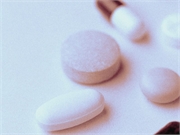One California lab claims heat is raising NDMA levels in ranitidine tablets
FRIDAY, Jan. 10, 2020 (HealthDay News) — The U.S. Food and Drug Administration is adding to a list of recalled lots of popular heartburn medications — including generic forms of Zantac — because the pills might contain small amounts of the suspected carcinogen N-nitrosodimethylamine (NDMA).
NDMA’s potential presence in Zantac and generic versions of the drug were first announced in September. The new recalls were announced Thursday by the FDA and include “all quantities and lots” of ranitidine hydrochloride capsules manufactured by Appco Pharma in the 150- and 300-mg sizes with expiration dates of April/May 2021 and “all unexpired lots” in the same dosages of ranitidine tablets manufactured by Northwind Pharmaceuticals. Neither company has yet received any reports of “adverse events” tied to the medicines.
In the meantime, scientists at one California lab believe they may be getting closer to understanding why NDMA is showing up in ranitidine tablets. “What we found out was that NDMA is being generated as a result of heating of ranitidine,” chemist Ron Najafi, of Emery Lab, told CBS News. His team found that at room temperature, NDMA levels in tablets remain at about 25 ng– far below the threshold level of 96 ng that is deemed unsafe by the FDA.
But heat changes that. When a pill was heated to 158 degrees Fahrenheit, NDMA levels rose to 142 ng. “So if someone were to keep their ranitidine, Zantac, in their car, for example, and in the middle of summertime, that product is going to get heated up and it’s going to generate this compound,” Najafi told CBS. “So NDMA in this case … is not an impurity in the drug, it’s being formed from the drug itself.”
CBS News Article
FDA: Appco Announcement
FDA: Northwind Announcement
Copyright © 2020 HealthDay. All rights reserved.








